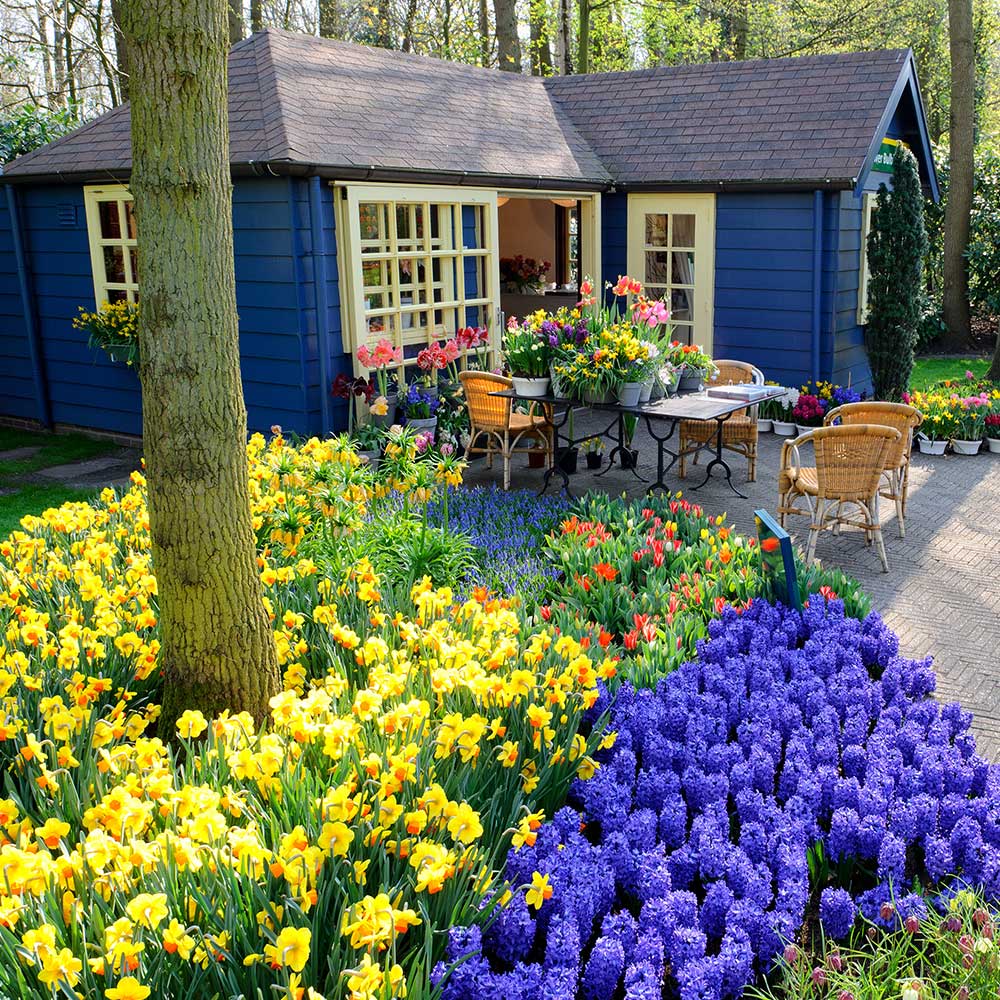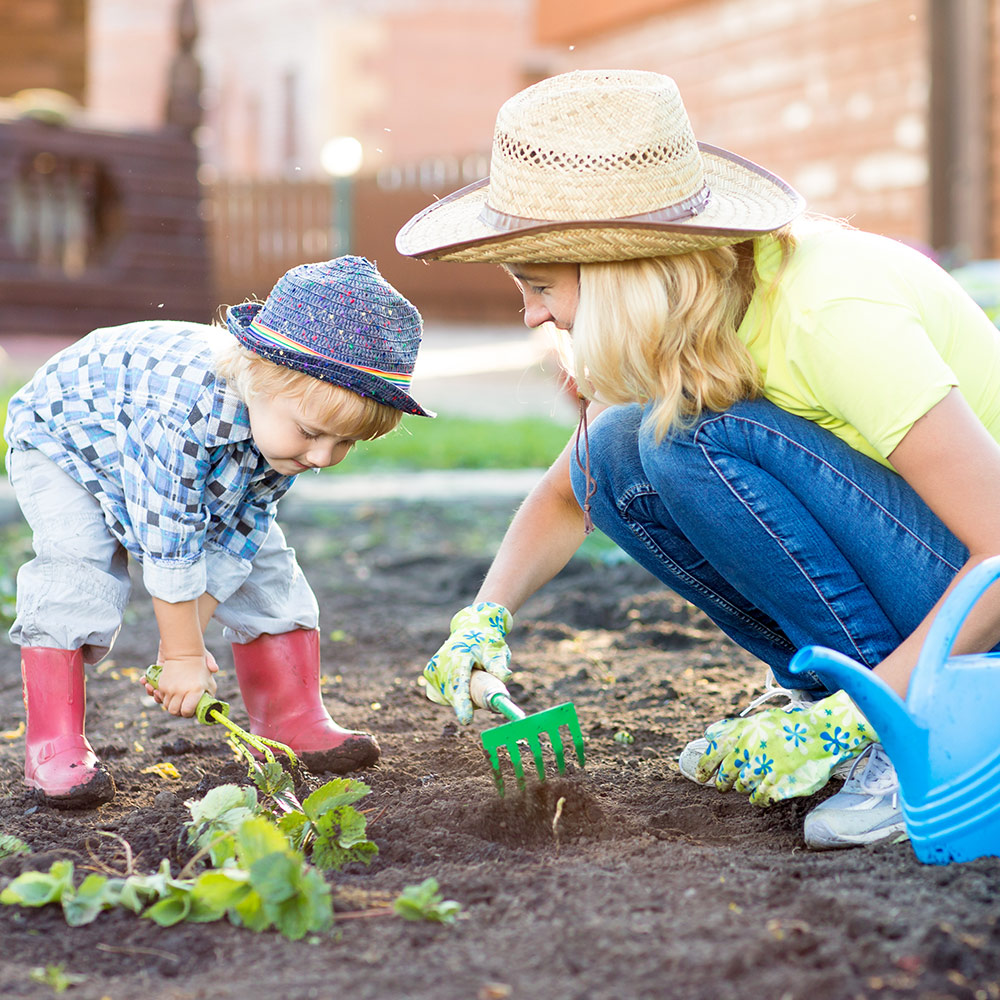
Do you have what you need to make your garden grow?


Garden Center
Shop Outdoor and Garden Supplies Near You
Shop Plants Online
The Home Depot Garden Center at Reno
The Home Depot's Spring Black Friday Sale
Find some of the best savings of the season with our Spring Black Friday deals. Level up your yard or patio with patio furniture to fit any decor style. Spring cleaning applies both indoors and outdoors, so upgrade your lawn and garden with gorgeous flowers. Don't forget to check out our outdoor power equipment, as well. Get it all done when you save during our spring sale, running only from April 4th through the 28th. Don't miss out on these savings.
The Home Depot Mother's Day Sale
Our Mother's Day Sale is a great time to help Mom upgrade her garden. We've got discounts on popular brands of herb plants, small plants, and those details that make a garden special: planters, garden decor, flower pots, and even patio furniture. If you're not sure of the right present when searching for Mother's Day gifts, a gift card never fails. Shop The Home Depot Mother's Day Gardening Gifts Sale from May 2nd through May 12th in-store or online.
On those beautiful days, clean up the yard before everything blooms in earnest. Many people feel inspired to refresh their outdoor space for entertaining, as well. Planning your garden lets you make the most of your time and space. Remember to measure your garden so you can find fresh mulch near you as soon as it's available. No matter what outdoor projects you choose to tackle, The Home Depot Garden Center in Reno can help you enjoy your spring activities to the fullest.
Plant Hardiness Zones Explained
The first thing you should know when planting veggies, spring flowers, and other seeds is your planting zone. Every location in the U.S. and its territories is sorted into blocks by climate. Find your zone on the USDA zone map and learn when to plant seeds.
For example, you could plant bell pepper seedlings outdoors in mid-March in Zone 10, but not until the end of May in Zone 4. For best results, choose plants in your zone number or less. In other words, a Zone 9 garden can support plants listed as Zones 1–9. You can plant seeds indoors roughly a month before you can plant them outside, or direct sow. Be sure to read your seed packet for details. If you start seeds a little later than recommended, it's not ideal, but it will likely even out as time passes.
Gardening in Your Growing Zone
This region ranges from 7–9, with higher elevations in Zones 5 and 6. You’ll find fertile land in some places, desert and mountains with harsher conditions elsewhere. What you can grow and when will vary considerably depending on where you live. In Zones 5 and 6, the outdoor growing season doesn’t begin here until mid-March or even April, although you can start some veggies by seed halfway through February. Warmer Zones 7–9 can plant earlier, but if you’re in the desert, you’ll likely want to investigate indoor gardening in an enclosed porch or sunroom.
Utilize greenhouses to grow herbs and vegetables. Native plants like cacti, succulents, and other hardy desert shrubs will easily grow outside. Other beloved garden vegetables love the heat, like squash, cucumbers, tomatoes, and peppers. If you start them indoors and carefully introduce them outdoors in the shade, you can enjoy raising vegetables even in a dry climate. However, many spring flowers are sensitive to that much heat and sun, so research to find which varieties can handle the weather before planting outdoors.
Plant Seeds Outside With Direct Sow
Planting seeds with the direct sow method, right into the soil, is another option. It doesn't give you as much organized planning in terms of space and reliability as starting indoors. However, if you like to go with the flow, follow the instructions on your seed package and try it out.
Prepare to deal with whatever hand nature deals you: You could have no seeds that germinate. A critter could eat the tender seedlings. All the seeds you plant in each hole may sprout, so you'll need to spread them out later or choose the most robust sprouts to survive in a process called thinning. Heavy rain might wash away the seeds. But if you're lucky, you'll get strong sprouts that are ready to grow all spring.
Start Seeds Indoors
If you're eager to get growing or would like more control in the care and feeding of seedlings, start your seeds indoors instead. In general, you can plant seeds indoors about a month before you can do it outside. Like direct sow, you push the seeds into the soil as directed on the seed packet, but that's where the similarities end.
You're responsible for giving them quality substitutes for sun and rain. Keep your seeds warm with warming mats and grow lights, water them carefully with a spray bottle or watering can, then thin them as they germinate in groups of three. Give them a boost with a gently blowing fan as they lengthen into sprouts if you'd like. Harden them off to get them used to outdoor conditions, then transplant them into your garden when they're big enough.
Transplant Young Plants Into Their New Homes
When your plants have three or four real leaves — different from miniature seedling leaves – transplant them. In quality soil, dig a hole the same size as the dirt plug where your transplant has been growing. If your ground soil isn't fantastic, dig a slightly bigger hole and fill the extra room with nutrient-rich topsoil. Apply fertilizer as directed, either on top of the soil after it's planted or in the hole. Don't apply more than recommended, as you could burn and kill the plant instead of helping it along.
Protect Your Garden With Mulch
Finish your planting by following it with compost and mulch. Compost enriches the soil so your garden can grow even better. It may help foster larger and stronger plants that bear more fruit and flowers. Mulch keeps your soil from drying out and controls weeds. Mulch and compost can be purchased in-store or created at home. The next time you're looking for "mulch near me," stop by the Garden Center to get the perfect amount.
Greet the Spring
Late winter into early spring is an exciting time in the world of gardening. Don't miss a minute of growing season. Prepare to fertilize your lawn, plan your garden and landscaping, and browse our garden center pages to find inspiration on what to plant when the weather warms. Shop for the seeds, soil, and fertilizer you need in the aisles of your Reno Garden Center, online, or on our mobile app. Let's get growing together.
Shop Outdoor and Garden Brands
Frequently Asked Questions About Gardening
Which planting zone am I in?
Check the USDA zone map, as planting zones have shifted slightly through the years. Planting zones with higher numbers can plant earlier in the year. Increase your odds of successful gardening by choosing plants that are meant for your zone.
What's direct sow in gardening?
If the soil is warm and pliable, consider planting your veggie, fruit, or flower seeds directly into your garden. This is called the "direct sow" method. Plant after the threat of frost is gone for the season, as seedlings and sprouts can't weather those conditions. You can also start your seeds indoors if you'd like. Consult your seed package for when and how to sow seeds.
Do you carry organic seeds and plants?
We offer many organic gardening options, including organic veggie seeds and fruit seeds, and organic flower and herb seeds which are subject to availability. We carry the organic soil to plant it in as well as the organic fertilizer to feed it.
Should I harden off my seedlings before planting them outside?
Yes, if you raised plants indoors from seeds, harden them before you transplant them. Hardening is the process of getting them used to the great outdoors and sun, rain, and temperature swings. It slows their growth until they're strong and ready to take off during a spring warm front. Hardening also makes your plants more resilient to a sudden cold snap.
How do I prepare for planting transplants or seeds outside?
Before you plant, make sure that the soil is healthy, your plant will have the right amount of sun, and it's warm enough outside. Check your seed package to see if it likes shade, full sun, or partial sun, as well as what time of year it should be planted. Space your plants as described on the seed package for best results so your plant babies have room to grow big and strong.
Should I use peat moss starters or coir starters?
Seed starters, full of nutrients in convenient pots or pellets, work for new and experienced gardeners alike. You don't have to use these starters if you're planting in soil, but you may want to. Starting seeds in peat pots works best for delicately rooted plants like carrots and beets, as well as flowers that require an acidic pH. Some people prefer coir starters instead, as they have a neutral pH. Check what type of soil your plants need to help narrow it down, and chat with a garden center associate if you need more info.
Nearby Stores
1001 Steamboat Pkwy
Reno, NV 89521
3.61 mi
Mon-Sat: 6:00am - 10:00pm
Sun: 7:00am - 8:00pm
5125 Summit Ridge Ct
Reno, NV 89523
5.79 mi
Store:
Pro Service Desk:
Mon-Sat: 6:00am - 10:00pm
Sun: 7:00am - 8:00pm
2955 Northtowne Ln
Reno, NV 89512
6.31 mi
Store:
Pro Service Desk:
Mon-Sat: 6:00am - 10:00pm
Sun: 7:00am - 8:00pm
)

)

.jpeg?im=Crop,rect=(363.69230769230774,1.2307692307692308,958.7692307692308,958.7692307692308))
)
)
)
)









)
)




)


)
)














































